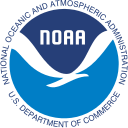Resources
Air pollution contributes to a wide variety of adverse health effects. EPA has established national ambient air quality standards (NAAQS) for six of the most common air pollutants— carbon monoxide, lead, ground-level ozone, particulate matter, nitrogen dioxide, and sulfur dioxide—known as “criteria” air pollutants (or simply “criteria pollutants”). EPA Criteria Air Pollutants
More Air Quality Readings from the Colorado Department of Public Health and Environment (CDPHE):
Click here for a map of Colorado that shows AQI values for all of Colorado.
For another detailed air quality summary Click here.
THE EFFECTS OF OZONE ON COLORADO AGRICULTURE
GERALD C. NELSON
The harmful effects of air pollution on human health have been the main focus of the state’s efforts to reduce leaks from gas and oil drilling and distribution. But leaks that release volatile organic compounds (VOCs) and contribute to high ozone levels are also detrimental to plant and animal growth with negative effects on farm incomes and the rural economy. Passing regulations that result in reduced ground level ozone could conservatively have the impacts of a five percent increase in crop and livestock production resulting in a more than $300 million increase in agricultural income annually in Colorado. Read Full Article >>

Get up-to-date information on the presence and severity of smoke in our area and throughout the U.S.
BIOCHAR
“Biochar is an organic soil amendment currently being researched and used in a variety of applications across Colorado. Biochar has the potential to provide benefits to multiple economic sectors integrated within its supply chain, for example biochar and biofuel co-production can provide additional revenue streams for forestry and waste management. Biochar applications may have a critical role in mitigating climate change, reclaiming and restoring land, and boosting soil fertility for agriculture and horticulture. This article explores some of the latest research relevant to biochar applications in Colorado…” Colorado State University Extension Learn More >>

